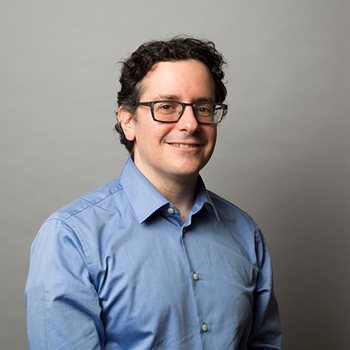September 25, 2019
Some people may consider Alzheimer’s disease and other types of dementia to be an “old person’s illness.” But taking care of brain health should be a priority throughout our entire lives.
Researchers now know that the brain starts to develop Alzheimer’s decades before the initial memory loss symptoms appear. They have also discovered that certain activities done throughout a person’s lifetime can boost the brain’s resilience to this illness, known as cognitive reserve.
“Cognitive reserve is the brain’s capacity to keep functioning well, despite the accumulated wear and tear of the aging process,” says Dr. Jed Meltzer, scientist at Baycrest’s
Rotman Research Institute and Canada Research Chair in Interventional Cognitive Neuroscience. “For example, some people can show fairly advanced signs of Alzheimer’s disease in the brain, but not display any overt symptoms associated with the illness for many years.”
Activities associated with building up this protective effect include: speaking another language, pursuing higher education, staying socially engaged and working in a complex job.
Baycrest researchers were involved in a groundbreaking study that uncovered that
people who were bilingual were able to delay the onset of dementia symptoms by four years.

Dr. Meltzer and his team are taking this research further by exploring how learning a second language could impact a person’s memory and attention. Recent studies have theorized that people who speak two languages are better able to multi-task, plan, prioritize and stay focused.
Over the course of 16 weeks, research participants are learning Spanish through the Duolingo app for 30 minutes each day, five days a week. They will have their memory and attention tested before and after using the app. Researchers are comparing these benefits to individuals who use a brain training app, BrainHQ, and individuals who aren’t doing any training.
“Keeping the brain engaged is just one of the things adults can do to protect their brain health,” says Dr. Meltzer, who is also an assistant professor in the departments of psychology and speech language pathology at the University of Toronto. “Our study aims to explore the short-term impacts these learning apps have on an older adult’s cognition and whether these apps are a practical, alternative method to help them boost their cognitive reserve.”
This project is supported by the Centre for Aging + Brain Health Innovation.
With additional funding, Dr. Meltzer and his team could incorporate social engagement into their research and explore a group intervention using technological assistance to teach adults interested in learning another language. This type of program could help revitalize endangered languages, such as Yiddish and Canadian Indigenous languages, while also engaging the brain and protecting brain health.
Support this work by donating online or calling Baycrest’s donations line at 416-785-2875.